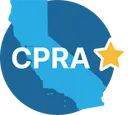The California Consumer Privacy Act (CCPA) is a landmark privacy regulation that fundamentally changes how you handle consumer data. California passed this law to give residents unprecedented control over their personal information while imposing strict compliance obligations on companies that collect and process this data. The regulation addresses growing concerns about data privacy, security breaches, and the lack of transparency in how you use consumer information.
CCPA applies to for-profit businesses that operate in California and meet specific thresholds: annual gross revenues exceeding $25 million, processing personal information of 50,000 or more consumers annually, or deriving 50% or more of annual revenues from selling consumers' personal information. Your company doesn't need to be headquartered in California—if you collect data from California residents and meet these criteria, you're subject to CCPA requirements.
What it is
The CCPA originated from California's legislative response to increasing data privacy concerns and was heavily influenced by the European Union's General Data Protection Regulation (GDPR). The law was signed by Governor Jerry Brown in June 2018 and went into effect on January 1, 2020. The California Privacy Protection Agency (CPPA), established specifically to enforce CCPA, serves as the governing body responsible for rulemaking and enforcement.
The regulation's primary purpose is to enhance privacy rights and consumer protection for California residents. It establishes a comprehensive framework governing how you collect, use, and share personal information, while giving consumers significant rights over their data. The scope extends beyond traditional data collection to include emerging technologies like artificial intelligence and automated decision-making systems.
Core requirements or principles
CCPA establishes four fundamental consumer rights that you must respect and facilitate:
Right to know requires you to disclose what personal information you collect, how it's used, and with whom it's shared. You must provide detailed privacy notices and respond to consumer requests for information about their data.
Right to delete allows consumers to request deletion of their personal information, with certain exceptions for legitimate business purposes like completing transactions or complying with legal obligations.
Right to opt-out gives consumers the ability to direct you to stop selling or sharing their personal information to third parties, including for advertising purposes.
Right to non-discrimination prohibits you from penalizing consumers who exercise their privacy rights through different pricing, service levels, or quality of goods.
Additional core principles include data minimization (collecting only necessary information), purpose limitation (using data only for disclosed purposes), and implementing reasonable security measures to protect personal information from unauthorized access or breaches.
Types or categories
CCPA compliance involves several distinct categories of obligations and processes:
Consumer rights categories include the four fundamental rights mentioned above, each with specific implementation requirements, response timelines, and verification procedures.
Data processing categories distinguish between different types of data handling: collecting personal information directly from consumers, obtaining it from third parties, selling it to other businesses, or sharing it for cross-context behavioral advertising.
Business classifications under CCPA include covered businesses (subject to full requirements), service providers (processing data on behalf of businesses), contractors (newer category with specific obligations), and third parties (receiving personal information for their own purposes).
Enforcement categories encompass different violation types: failure to implement consumer rights procedures, inadequate privacy notices, unauthorized data selling or sharing, discrimination against consumers exercising rights, and insufficient security measures leading to breaches.
Compliance process
Achieving CCPA compliance requires a systematic, multi-phase approach that typically spans 12-18 months for comprehensive implementation.
Phase 1: Assessment and planning (3-4 months) involves conducting a thorough data inventory to understand what personal information you collect, where it's stored, how it's used, and with whom it's shared. This phase includes gap analysis against CCPA requirements and developing a compliance roadmap with priorities and timelines.
Phase 2: Policy and procedure development (2-3 months) focuses on updating privacy policies, creating consumer request handling procedures, establishing verification processes, and developing employee training programs. You must also implement systems for tracking consumer requests and maintaining compliance records.
Phase 3: Technical implementation (4-6 months) involves deploying systems to handle consumer requests, implementing opt-out mechanisms, updating websites with required disclosures, and establishing secure data processing procedures. This phase often requires significant IT resources and coordination across multiple departments.
Phase 4: Testing and rollout (2-3 months) includes piloting compliance procedures, training staff, testing consumer request processes, and conducting final compliance reviews before full implementation.
Key roles include executive leadership (providing oversight and accountability), legal teams (interpreting requirements and managing risk), IT departments (implementing technical solutions), privacy officers (coordinating compliance efforts), and customer service teams (handling consumer requests).
Common challenges
Organizations frequently encounter several obstacles when implementing CCPA compliance:
Data mapping complexity proves challenging for businesses with complex data ecosystems, multiple systems, and extensive third-party relationships. Many organizations discover they lack comprehensive understanding of their data flows, making it difficult to respond accurately to consumer requests or implement necessary controls.
Technical implementation hurdles include integrating compliance capabilities into existing systems, ensuring data security while providing access, and managing the volume of consumer requests. Legacy systems often require significant modifications or replacements to support CCPA requirements.
Vendor management complications arise because you must ensure your service providers, contractors, and third parties also comply with CCPA. This requires updating contracts, conducting vendor assessments, and ongoing monitoring of compliance across your supply chain.
Resource constraints affect many organizations, particularly smaller businesses that must allocate significant personnel and financial resources to compliance without dedicated privacy teams or extensive technical capabilities.
Evolving regulatory landscape creates ongoing challenges as the CPPA continues issuing new regulations and guidance, requiring you to continuously update your compliance programs and procedures.
Benefits of compliance
Investing in CCPA compliance delivers significant business, operational, and customer trust benefits:
Enhanced customer trust and loyalty results from demonstrating your commitment to privacy protection. Consumers increasingly value privacy-conscious businesses, leading to stronger customer relationships and competitive advantages in the marketplace.
Operational improvements emerge from implementing comprehensive data governance programs. You often discover opportunities to streamline data processing, improve data quality, and enhance security measures that benefit your overall business operations.
Risk mitigation includes avoiding substantial financial penalties, reducing legal exposure, and preventing reputational damage from privacy violations. The cost of compliance is typically far less than potential fines, lawsuits, and business disruption from non-compliance.
Business process optimization occurs as you gain a better understanding of your data assets and processing activities. This insight often leads to improved decision-making, reduced data storage costs, and more efficient operations.
Competitive advantage develops as privacy-compliant businesses differentiate themselves in the marketplace and build stronger relationships with privacy-conscious consumers and business partners.
Who needs it and when
CCPA compliance is required for businesses meeting the statutory thresholds, but recommended for others as a best practice:
Mandatory compliance applies to businesses with annual gross revenues exceeding $25 million, those processing personal information of 50,000 or more consumers annually, or companies deriving 50% or more of revenues from selling personal information.
High-priority industries include technology companies, retailers, healthcare providers, financial services, advertising and marketing firms, and data brokers. These sectors typically process large volumes of personal information and face heightened regulatory scrutiny.
Recommended compliance extends to smaller businesses that collect personal information from California residents, companies planning future growth that may trigger CCPA thresholds, and organizations in regulated industries with existing privacy obligations.
Timing considerations include immediate compliance for businesses already meeting thresholds, proactive preparation for growing companies approaching thresholds, and ongoing compliance maintenance as regulations evolve and business operations change.
Preparation tips
Getting audit-ready under CCPA doesn’t require guesswork. These practical actions can position your organization for success:
Start with a scoping analysis. Use statutory thresholds to determine your obligations and exposure.
Map your data comprehensively. Identify where California personal and sensitive information lives—by system, vendor, and use case.
Build verifiable DSR workflows. Include systems for intake, identity verification, and timely fulfillment. Keep logs of completed requests.
Update public disclosures. Ensure your privacy notice and Do Not Sell/Share links reflect your actual data practices and user rights.
Review and revise vendor contracts. Insert mandated clauses restricting data use, requiring notice of sub-processors, and enabling cooperation with consumer request fulfillment.
Assess high-risk activities. If your company handles SPI or large-scale behavioral advertising, prepare for required cybersecurity audits and formal risk assessments.
Train internal teams. From marketing to customer success, make sure key roles understand new obligations and how to handle disclosures or requests.
Conclusion
The CCPA, as amended by the CPRA, is now a fully operational privacy regime with binding obligations, escalating enforcement, and complex operational implications. Compliance isn’t a single milestone—it’s an ongoing commitment that spans legal, technical, and organizational domains.
If your business operates in California or handles high volumes of personal data, now is the time to evaluate your readiness. Use the law's structure to build a durable privacy posture—one that supports accountability, transparency, and long-term trust with your customers.

Related Posts
Stay connected
Subscribe to receive new blog articles and updates from Thoropass in your inbox.
Want to join our team?
Help Thoropass ensure that compliance never gets in the way of innovation.












.png)